Starting a business in New Zealand is exciting. But one of the most common questions new business owners ask is: Do I need an accountant to get started? The short answer? Not always, it depends on your circumstances.
Consider this scenario. Jamie is an electrician. He has been employed, but for years now he has been doing the odd electrical job for people. It’s got so much lately that he has decided to leave his employed role and go out on his own as an independent contractor. This means Jamie is now responsible for his own income tax, GST returns, and financial reporting.
Jamie expects to earn over $60,000 this year, so GST registration is a must. Jamie is leaning toward doing his bookkeeping himself to save money. He also likes the idea of being more financially aware and hands-on with his money.
However, he’s also wondering if using a bookkeeper or accountant might bring hidden value, like uncovering deductible expenses he wouldn’t have thought of on his own. He wants to know if a bookkeeper or accountant is worth the cost, and if using a bookkeeper or accountant can actually save you money.
Let’s explore whether Jamie should outsource his bookkeeping, and how you can decide if it’s right for your business.
The Good News First…
The good news is you don’t legally need to hire an accountant or bookkeeper when you're first starting out as an independent contractor. When you start your business, you can register with the Inland Revenue (IRD), keep your own records, and file your own tax returns.
But as your business grows, in profit and size, it might be easier to look at hiring a professional.
Doing It Yourself
Like Jamie, if you’re just starting out it might be possible to manage your own accounts. There are lots of tools out there such as Xero, MYOB, Solo, or QuickBooks that can help you keep track of your business finances.
Read my blog on ‘Which Accounting Software is Best for your business?’
The pros of doing it yourself are that it gives you a good idea of how you are spending your money, and if you don’t quite understand something you can always refer to the IRD website or business.govt.nz.
However, some questions to ask yourself are:
Do you find your financial records time-consuming?
Would you like to free up more of your time to concentrate on the earning potential of your business?
Do you understand your tax obligations: income tax, GST, Provisional Tax?
For Jamie, initially, an Excel spreadsheet was sufficient. He opened a separate bank account, registered his business, and watched a few ‘how to’ videos on GST. But now, a few months in, he’s busy. He is considering taking on a contractor to help with the workload. And the admin is piling up.
What started as a manageable task is now taking hours each week trying to stay on top of it, and he’s falling behind. GST filing takes several hours to file when it’s due, because he has to spend time catching and inputting receipts, and he’s not even sure when it’s due. His income tax deadline is coming and he’s pretty sure he’ll be liable for provisional tax next year. He’s not sure how to calculate it, or what expenses he should claim, and he doesn't really have the time to do the research.
He’s pretty sure he could earn more in a few hours of electrical work than what he’d pay a bookkeeper or accountant to handle the admin. He’s realising he’s spending a lot of time on admin, where he could be using that time to take on extra work, or enjoying leisure time with his family. Jamie didn’t become an electrician to spend his evenings trying to figure out accounting software.
It might be time for Jamie to consider hiring a bookkeeper or accountant!
Bookkeeper or Accountant?
Bookkeeping and accounting are often used interchangeably. But while they overlap in tasks somewhat they’re not the same thing. The difference between a bookkeeper and an accountant is:
Typically, bookkeepers focus on recording transactions and maintaining an organisation's finances. If you’re a small sole trader this may be all you need and the more affordable option.
If you experience rapid growth and need more advanced financial analysis, then an accountant is the right choice for you. Accountants are the right fit for larger businesses that get audited regularly.
Choose the Right Fit for Your Business!
Sole trader, partnership, or limited company? Not sure which is the right fit? A bookkeeper and accountant can explain the pros and cons of each and help you make the right choice for your business.
Not sure what accounting software is right for your business? We can help you set up accounting software that will help you keep track of your invoicing and record keeping. It saves a lot of stress later, so tax time isn’t a nightmare.
Not sure about your tax obligations? Even small businesses have to file income tax, GST, provisional tax and GST. We can help you stay compliant, so you don’t pay more than you need to.
Confused about what you can legally claim as a business expense? We know what you can correctly claim as a business or personal expense, and make sure you’re not missing common deductions like office, tools, software, or travel.
Many sole traders and independent contractors manage the day-to-day admin and bookkeeping requirements of their business, and hire a bookkeeper or accountant for those bigger jobs like income tax returns, GST, or business advice as your business grows.
A bookkeeper is business expense, so it can help reduce your tax bill. It’s often money well spent!
Not sure if you need an accountant or a bookkeeper?
Let’s have a no-pressure chat and figure out what your business needs.m
Phone me on 027 212 9569 or email danny@balanceledgers.co.nz



